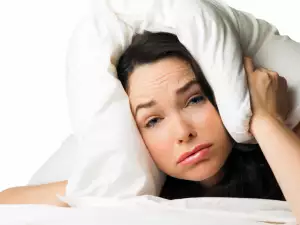Scientists from Pennsylvania have come to the conclusion that our sleep depends greatly on what we eat. The experts are adamant that there is a direct link between what we eat and the quality of our sleep during the night - and not just dinner but all of the food we eat throughout the day.
On average our sleep lasts between 7 and 8 hours - this is plenty for us to wake up feeling rested and ready for the new work day. According to the study, the calories we take in throughout the day can not only alter the quality but the duration of our sleep as well.
Scientists classify a short sleep as lasting 5 hours or less. A normal sleep, according to the experts, is one that lasts 7-8 hours, while a long one is considered to be one lasting more than 9 hours. The experts claim that more calories ingested throughout the day mean a lower quality and shorter night's sleep.

They are convinced that people who have a short sleep drink way too little water and eat more carbohydrates than is necessary. As well, red or orange colored foods are often found in their diet.
On the flip side, those individuals who love spending more than 9 hours under their bed sheets eat mostly milk and eggs, a lot of meat, chocolate, drink alcohol and forget about water, experts claim.
If you have a difficult time falling asleep and find it just as difficult to wake up in the morning, while also not feeling rested, try changing your diet and the foods in it - it may work out for the better.

Other studies indicate that the biggest factor for quality sleep is what we eat right before bed. According to those results, your dinner should contain vitamin B6, as well as tryptophan, for a truly good night.
Experts have determined that fish, light meats (chicken and turkey, beef), eggs and feta cheese are suitable for a light dinner.
But enough about animal products, here are the fruits and vegetables - potatoes, spinach, carrots, bananas, avocados. Other suitable foods for dinner include rice, buckwheat, soya, beans, as well as chickpeas.














